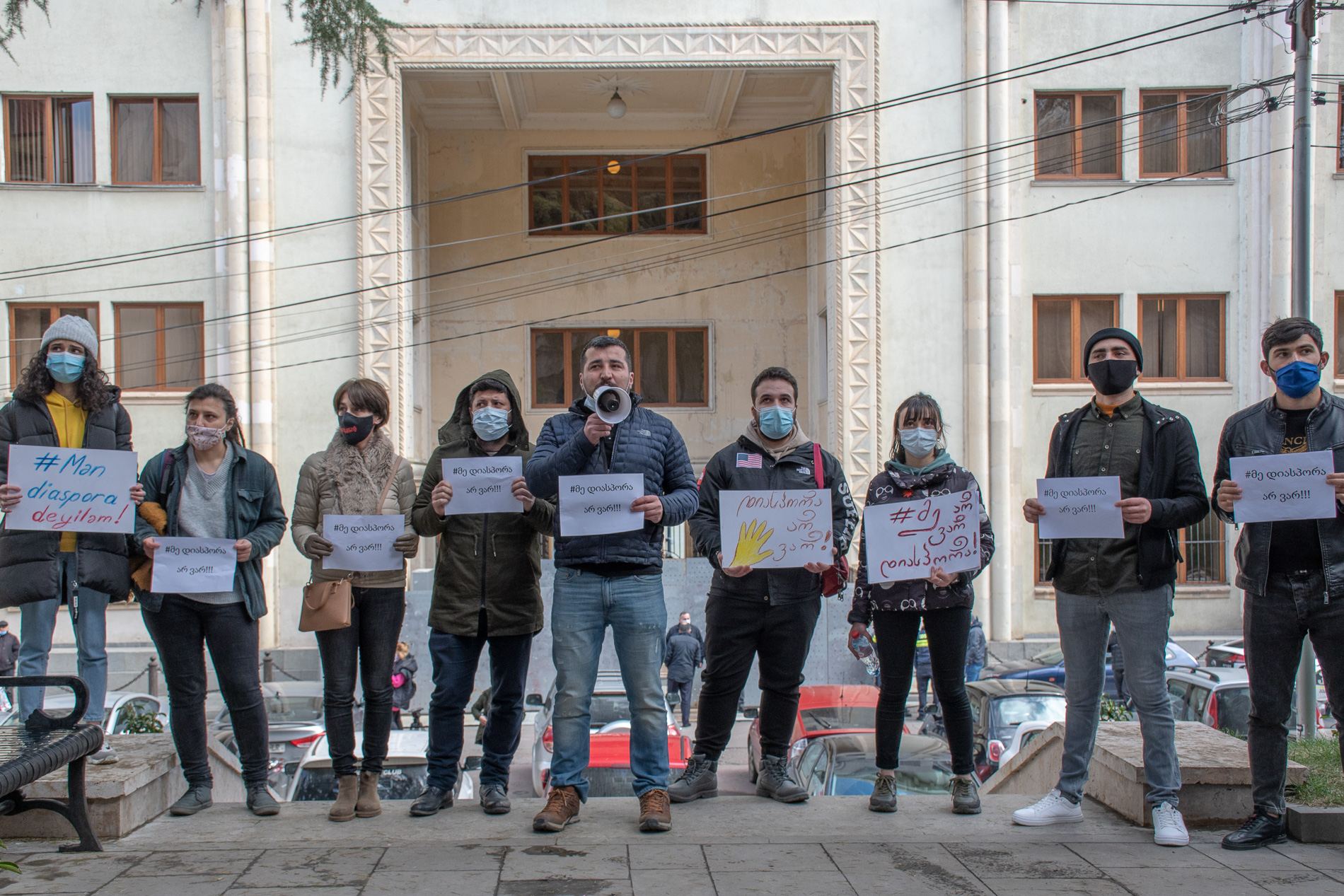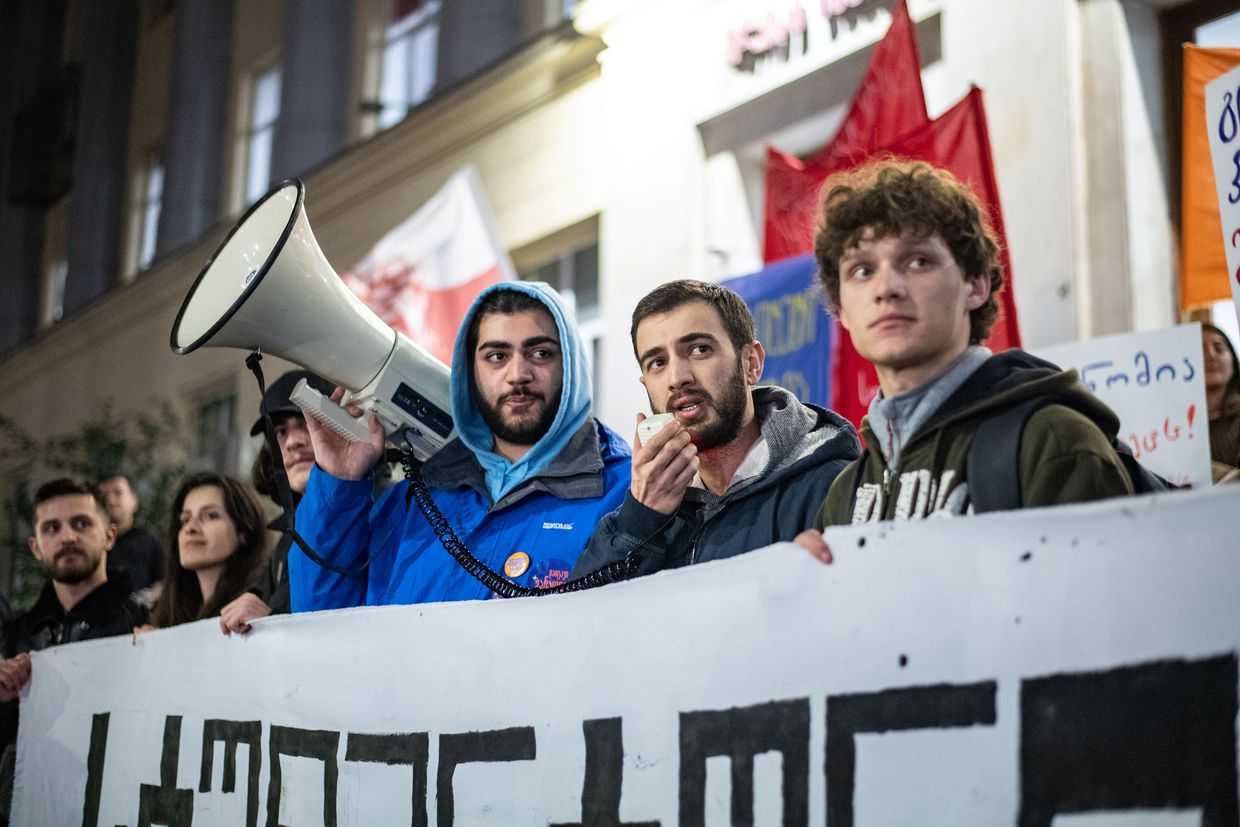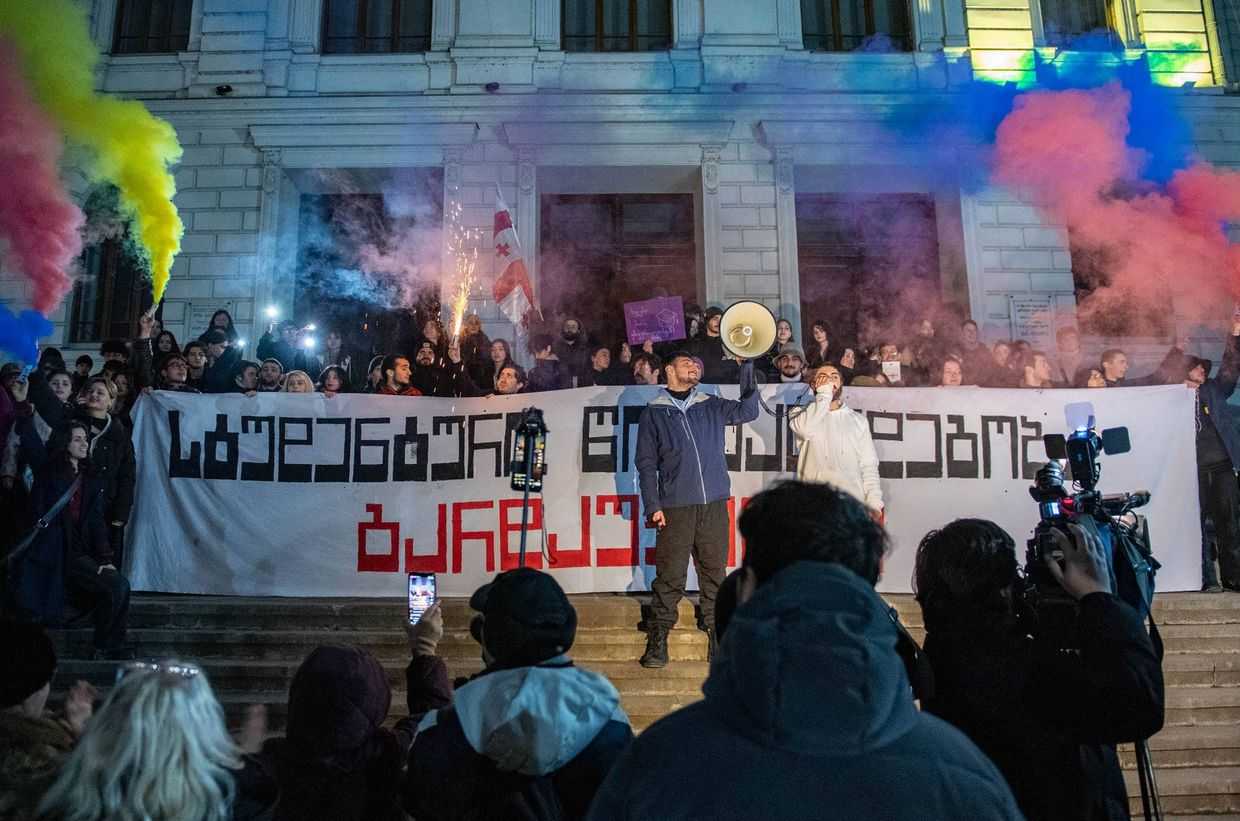
A number of ethnic Azerbaijanis in Georgia have criticised the government for submitting a decision to lift the curfew for Novruz, a secular holiday, to the State Agency for Religious Issues.
Members of Salam, a group advocating for equal treatment for ethnic minorities in Georgia, said the move was a sign of ‘incompetence’.
While Novruz has Zoroastrian roots, in modern times it is a popular spring holiday observed annually by many communities, predominantly in the Middle East, Caucasus, and South Asia.
In Georgia, Novruz, or Novruz Bayrami, is traditionally marked by the country’s ethnic Azerbaijani community with public events involving the government officials. In 2010, Georgia recognised Novruz as an officially observed holiday, though stopped short of making it a public holiday.
Salam and a number of community-based and civil rights groups appealed to Georgian Prime Minister Irakli Gharibashvili on 12 March for the curfew to be lifted on Novruz, only to learn 4 days later that the government had sent the issue to the Religious Issues Agency to have a say on this matter.
Members of Salam said that Novruz is traditionally marked with visiting friends and family or lighting a campfire, and that this would be the second year in a row that Georgians would be unable to properly mark it.
‘We thought that it would have been nice to have the curfew cancelled so that at least this year, citizens were able to mark it without stress’, Kamran Mammadli, one of the co-founders of Salam, told OC Media.
Following an anti-coronavirus inter-agency meeting on 18 March, the Head of the Government Administration, Ilia Darchiashvili, confirmed that the curfew would not be removed on 21 March, citing public health precautions.
Ethnic Azerbaijanis, the largest ethnic minority in Georgia, were restricted from marking Novruz on 21 March 2020 due to the coronavirus pandemic. Several days later the authorities put the southeastern Marneuli and Bolnisi municipalities, where Azerbaijanis are the majority, under quarantine.
The government has faced accusations of double standards in their treatment of different groups during the pandemic. In April 2020, they failed to enforce the curfew against Christian churchgoers on Easter.
The authorities were also reprimanded by critics for being too slow to provide information on coronavirus mitigation measures in minority languages, including the Azerbaijani language.
Kamran Mammadli said that in their original appeal, they underlined that Novruz was a popular holiday, ‘not a religious one’ but still got an ‘unfortunate’ reply from the government.
In recent years, several groups in Georgia, including Salam, have criticised Georgia’s State Agency for Religious Issues, insisting they were not a trusted institution and that they had proved unable to address their grievances, including religious equality issues and inter-religious disputes.
‘I am not a diaspora’
The controversy surrounding Novruz came as the government faces criticism from ethnic minority groups who said they were being labelled a ‘diaspora’ as opposed to being native to Georgia.
It followed Parliament’s 15 March decision to set up a council on ethnic minority issues under the Diaspora and Caucasus Issues Committee.
Rima Beradze, Deputy Chair of the Georgian Dream group in parliament, whom the Committee named as the Council’s head, claimed the new group included ‘16 communities’ and would work on issues of ‘small nations’, ‘tolerance’ and would facilitate cultural events.
On 17 March, ethnic Azerbaijani activists launched an online Georgian-Azerbaijani campaign under the hashtag ‘I am not a diaspora’ (#მე_დიასპორა_არ_ვარ, #mən_diaspora_deyiləm) to in protest over the decision.
Several Armenian activists have also spoken out against the decision.
In recent years, some minority activists have grown resistant to being labelled by Azerbaijani authorities as ‘diaspora’, arguing that it contradicted the spirit of civil integration in Georgia.
The same day, 14 civil society groups supported the protest issuing a joint statement to condemn the choice of official terminology. The groups included the Pankisi Community Organisation, Union of Georgian Muslims, queer rights group Equality Movement, and the Open Society — Georgian Foundation.

On 18 March, Salam and their supporters gathered outside Parliament in Tbilisi to protest the use of the word ‘diaspora’ to describe ethnic minority groups in Georgia.
‘When such Council is set up on the basis of the Diaspora Committee, it becomes apparent that both the Georgian Parliament and the whole state consider ethnic minorities as belonging to other countries’ diasporas’, Salam’s statement read.
Zviad Abashidze, an Associate Professor at Tbilisi State University told OC Media that suggesting Georgia’s ethnic minority communities were diasporas of other countries was a mistake.
‘Georgia is not a country with large immigrant or diaspora communities like any contemporary Western European nation or an immigrant/diaspora state like the USA. Therefore, these are only nationals of Georgia with equal rights and with different ethnic backgrounds with centuries-long histories in Georgia’, Abashidze said.
‘This means the state cannot declare them “diasporas”, which in turn could become a real obstacle to further civic integration and national consolidation.’









